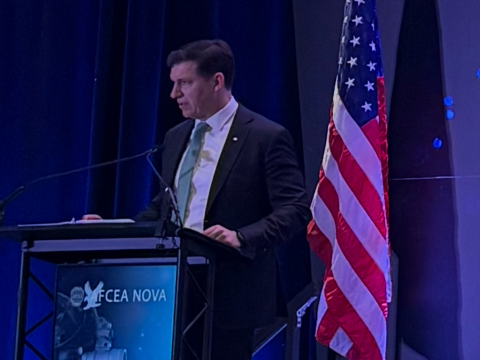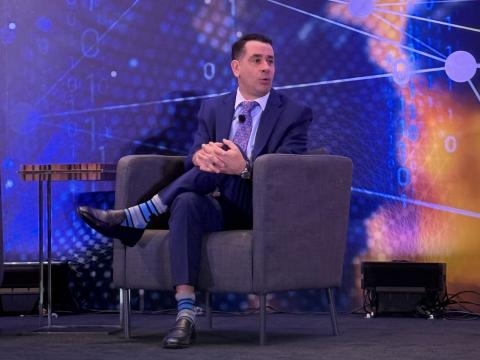Incoming: Developing Young Leaders
The fundamentals of leadership are not new. They have been demonstrated and recorded throughout history. Namely, leadership is not a spectator sport. While some individuals are natural-born leaders, the vast majority of us must hone and practice leadership skills continuously over time.
My wife and I once passed through three different airports on a trip to visit friends. As I observed each passenger terminal, I was struck by the behavior of the employees.
While the mission of those airports was quite similar—process passengers, route bags, maintain safety and keep to the flight schedule—every airport left me with a distinctly different impression. Some were more efficient, had happier employees, were cleaner and demonstrated qualitative disparities compared with others. What accounted for these differences? Airport leadership.
I began considering the leaders of other organizations in our lives—schools, governments, places of worship, businesses and military units. Each group has a similar mission, yet not all perform at the same level. A couple of recent examples illustrate this point.
With state and local governments, a number of cities have filed for bankruptcy and a large central government missed a bond payment. Actions like these ripple through the economy and negatively affect creditors and citizens. On the other hand, a well-known entrepreneur started a commercial space launch company and promised to develop reusable launch vehicles. A few weeks ago, that entrepreneur’s team safely landed the first stage of a rocket for the second time. I had the opportunity to see the team in action on Florida’s Space Coast a few years ago, and clearly the team members embraced their leader’s vision.
The qualities of great leaders are tried and true. Great leaders have tremendous internal strength and fortitude. They live by a set of uncompromising principles: integrity, honesty and humility. These traits are demonstrated in every act they perform and in every word they speak. Their behavior is beyond reproach in public and in private, and you can be sure it is scrutinized by their followers. This does not mean that great leaders do not make mistakes, but their mistakes usually are not repeated and do not intentionally cause harm. When they make an error, great leaders take immediate responsibility, right the wrong and learn from the experience.
The best leaders truly care about their people. They shine spotlights on others, rather than aggrandizing themselves. They bring out the best in people and provide a vision and a clear compass as guideposts to members of their organizations. They do not leave their expectations to the imagination; they help their followers understand unfamiliar places and achieve unimaginable goals.
Leaders realize that the most significant accomplishments in life rarely result from one person’s effort. Rather, they spring from a team of dedicated and motivated individuals rallying around a common purpose. While the motivation usually starts with the leader, it is sustained by the leader’s ability to share the vision and inspire others until the vision permeates all levels of the organization and each member has internalized it as his or her own. When this occurs, team members perform in ways that demonstrate they believe what they are doing is important and has value beyond their expectation of reward or individual recognition.
I have heard that time is the one resource we cannot increase. I believe that, and I had a mentor who told me that he partly focused on deciding what not to do. Leaders have a great deal of demands on their time, yet the best leaders I’ve observed have found a way to maintain balance in their lives. They emphasize personal and professional growth to their people, placing high value on their own total well-being. I spent time with a senior leader of a top international company recently. Despite intense job demands, this leader gets to the gym, spends time with family members and friends and sets aside moments for quiet reflection. The best leaders have an ability to remain composed under pressure and navigate through the most difficult situations. Balance is key to this.
Becoming a capable leader, and continuing to grow into a great one, can be a life’s journey. Know that there will be challenges along the way, and how you respond to those challenges will say a lot about you. At one time or another, we all face a choice that defines who we are. Take former Penn State football coach Joe Paterno. For all the great things he accomplished, it appears he failed at the greatest challenge in his life, when self-preservation or misguided friendship prevented him from doing the right thing. Prepare yourself for those life challenges.
The fundamentals of leadership are not new. They have been demonstrated and recorded throughout history. Namely, leadership is not a spectator sport. While some individuals are natural-born leaders, the vast majority of us must hone and practice leadership skills continuously over time. Young people should read, observe and experiment with different styles and techniques to grow into the leaders they aspire to be.
Lt. Gen. Mike Basla, USAF (Ret.), the former chief of information dominance and chief information officer of the U.S. Air Force, is the senior vice president of Healthcare, Litigation and Enterprise IT for CACI.




Comments